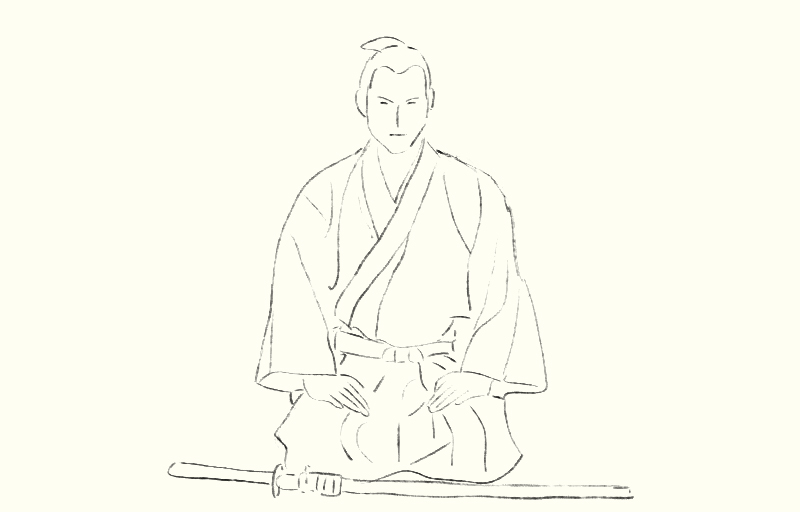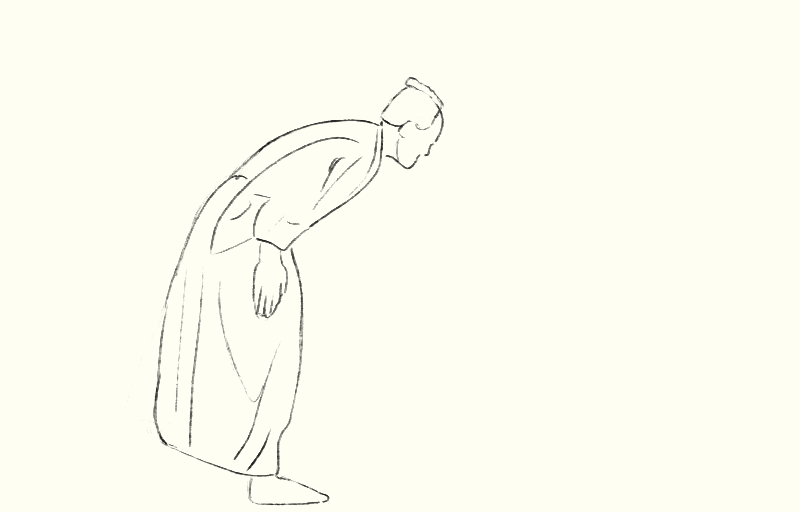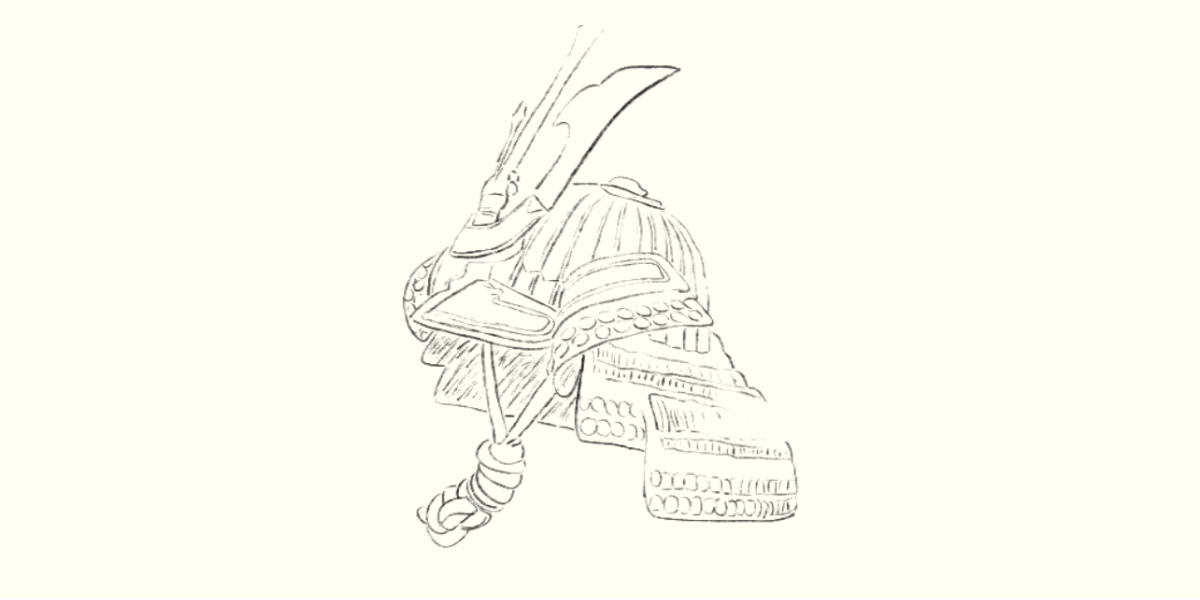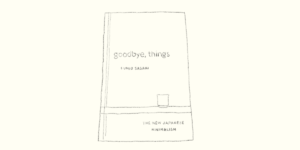1. Overview of the Article
In this article, I will discuss the way of life of the samurai known as Bushido.
This article is recommended for:
-Those interested in the way of life of the samurai.
-Those who want to use the way of life of the samurai as a reference for their own lives.
2. What is Bushido?
First, let’s explain the meaning of Bushido(武士道).
The word “Bushi(武士)” means samurai.
The word “Do(道)” means path or way.
So, it means the way of the samurai.
When we look up the word “Bushido” in a Japanese dictionary, it means:
The morality formed among samurai in Japan.
“Daikanwa Daijirin 4th Edition” by Sanseido
The morality developed within the samurai class in Japan.
“Koujien 7th Edition” by Iwanami Shoten
From these results, we can say that Bushido is the morality of the samurai.
3. Misconceptions of Bushido Spread in the West
Regarding the essential content of Bushido, there are actually some misconceptions spread in Western society.
The reason is this book.
This is probably the most famous book written about Bushido.
Interestingly, this book was published for a specific reason.
One day, the author, Inazo Nitobe, received this question from a Belgian scholar friend.
“How do you conduct moral education in Japan, where there is no religious education?”
The background of this question was to understand why Japanese people have a strong sense of morality.
When faced with this question, Nitobe couldn’t answer immediately.
To answer this question, he wrote this book, Bushido.
The morality of the Japanese people is deeply connected to the morality of the samurai.
Therefore, he attempted to explain the morality of the Japanese people using the word Bushido.
After its publication, this book was widely accepted in Western society and continues to be read by many people today.
However, this book is merely an explanation of the morality of the Japanese people.
While it is based on Bushido, it is different from the original Bushido.
In fact, there were criticisms within Japan regarding the content of the book.
Due to its widespread popularity, a slightly misguided understanding of Bushido spread worldwide.
4. The True Bushido
In this article, to introduce the accurate Bushido, I will explain based on this book called “Hagakure”.
Why is this book considered accurate Bushido?
Because this book was actually used in the education of samurai.
The Bushido written by Nitobe, as mentioned earlier, was written in a time when there were no longer any samurai.
*By the time this book was written in 1899, the caste system had been abolished, thus there were no longer samurai in Japan.
On the other hand, Hagakure was written before the abolition of samurai.
Furthermore, an important fact is that Hagakure was written for the next generation of samurai.
Therefore, Hagakure was actually used in the education of samurai.
Therefore, I will explain the content of Bushido based on the principles outlined in the Hagakure.
5. Bushido – The morality of the samurai –
Let’s start introducing the contents of “Hagakure” from here.
I will provide explanations as needed along with the actual content.
5-1 Samurai Mindset

Live every day as if it were your last.
Bushido is the commitment to approach matters with a strong resolve, prepared to face death.
Samurai are required to possess a belief in themselves and the courage to face death without fear.
Without deviating from the normal course, great tasks cannot be accomplished.
Key Points:
It is natural for people to fear their own death.
Therefore, everyone tends to rationally consider gains and losses and lean towards self-preservation as a matter of course.
On the other hand, samurai are liberated from such distractions and focus their energy solely on fulfilling their mission.
Give your best in this moment.
A person’s life is built upon a series of moments.
Considering this, there’s no need to hesitate or waver.
Simply live in the present moment.
Most people mistakenly believe that there’s a different life waiting for them in the future.
It is not true.
This moment is everything.
Urgency and normalcy are one and the same.
Make decisions with an unwavering spirit
Samurai make decisions with an unwavering spirit.
In times of need, others may not lend a hand or speak the truth.
Therefore, you must be prepared to make decisions with determination.
When making decisions, two approaches are beneficial:
1. Seven Breaths decision
Instead of dwelling on it for a long time, make a decision within seven breaths.
Delaying decisions may dull judgment or lead to excuses for not acting.
2. Prepare to get wet in heavy rain
When caught in a sudden rainstorm, many people rush to avoid getting wet or walk along the eaves.
However, they’ll still get wet in the end.
It’s better to accept the inevitability of getting wet from the start.
Be humble
In the world, some excellent individuals are calm, composed, and possess brilliant intellects, achieving flawless results even in their tasks.
However, you should not trust them based solely on their excellence.
This is because they tend to excessively showcase their talents and intelligence, lacking humility.
Such individuals believe they can solve any problem solely with their intellect.
Even if it’s not true, they tend to justify themselves with clever reasoning.
Continuing this attitude, they’ll never gain trust from others or have meaningful interactions.
Without the respect and trust of others, it is difficult to demonstrate one’s talent.
Conversely, even without wisdom or talent, you should continue to maintain sincerity and purity of heart, genuinely desiring to be of service to others.
Such individuals may unexpectedly achieve great results and fortune.
People’s strengths and talents are like swords.
Exposing your talent openly may cause unnecessary wariness from others.
5-2 Samurai Lifestyle Attitudes

Always be pure and beautiful
Samurai were very meticulous about their appearance.
They washed themselves every morning, Perfumed their hair with fragrance, and kept their nails neatly trimmed.
Their armor was always free of rust, dusted off, and well-maintained.
These actions are not for adornment.
Samurai took care of their appearance so they would be ready to face death at any moment.
Furthermore, as samurai, their daily mindset, language, and behavior were all expected to be sophisticated and beautiful.
Continue to learn always
Many people cannot accept advice from others.
Even fewer can act on those lessons.
Once a person passes thirty, they often lack those who give them advice or guidance.
As a result, they repeat the same mistakes, becoming self-centred.
That’s why it’s crucial to approach wise individuals with understanding and absorb their teachings.
Additionally, learning from ancient proverbs and the actions of great individuals is highly beneficial.
In this complex world, relying solely on one’s wisdom isn’t enough.
By studying the past and consulting with others, you can prevent major failures and mistakes.
Accept what you don’t know, and enjoy your growth
When exploring old texts, there are various interpretations, making it difficult to decide which one to adopt.
In such cases, it’s important to accept that there are things you don’t understand.
Among what you don’t understand, some things are intentionally made easy to understand, while others may become clear over time, and there are those you may never understand.
This is the essence of exploration.
Mysterious things and incomprehensible phenomena are naturally beyond understanding.
Easily grasping them is merely superficial knowledge.
Key Points:
People generally seek immediate solutions and conclusions.
However, the essence of learning is not discovering answers immediately, but rather in the adventure of exploration itself.
You should embrace the unknown with optimism and enjoy the process of learning.
Don’t rush for success.
To achieve great accomplishments, it takes 20 or 30 years of long effort.
Therefore, rushing to achieve results and seek recognition is not advisable.
When in a hurry, individuals tend to overstep their responsibilities, become overly confident with small praises, and let their work become sloppy.
As a result, they are looked down upon by those around them, and both people and opportunities drift away.
Even for intelligent individuals, it is difficult to demonstrate talent from the beginning.
It is important to reflect on one’s shortcomings and continue to make efforts throughout one’s life.
5-3 How to communication with Others

Do Not Spread Rumors
You should be cautious not to make unnecessary remarks and avoid confrontation with others.
Especially detrimental is discussing other people’s failures and mistakes.
Unfortunately, individuals with such distortions of the heart have existed in every era.
Whether you are happy or unhappy, you must be mindful of your speech.
When speaking, choose your words carefully. Those who hold their tongues are respected in any era and are unlikely to be punished.
Understand Your Surroundings
Employers are always looking for helpful subordinates.
Therefore, those who serve should focus only on becoming useful individuals.
Overthinking can lead to being perceived as difficult to deal with, which can cause the employer to be cautious.
It is ideal to spend time with a humble attitude and gradually become helpful to the employer. Flashiness does not indicate authenticity.
When serving a timid and unreliable employer, provide mental support.
When dealing with a strong and intelligent employer, demonstrate problem-solving skills.
When such talents are lacking, the employer begins to regard the people around them as useless and adopts an arrogant attitude.
In such a situation, it becomes difficult to be rightfully appreciated, no matter how outstanding the achievements may be.
Just as one must confirm the presence of depths and rapids when crossing a river to reach the other side, in the worst case, failure to do so can lead to death.
The same applies to the mindset of work. Considerations such as the flow of the times, customs, the preferences of leaders, and dislikes.
What happens if one works recklessly without considering this important information?
One will become useless to the employer and ruin oneself. One must not try to immediately please the employer. Initially, one should step back, observe the surroundings carefully, and discern what the employer dislikes.
Key Points:
Understanding the culture, customs, leader’s preferences, evaluation points, etc., of the environment in which one finds oneself is crucial.
In a company’s work, you must consider the direction of the team, the intentions of the president or superiors. Pushing one’s own way and achieving short-term results may make it difficult to gain long-term trust and evaluation.
Give Advice Without Embarrassing Others
When pointing out someone’s shortcomings, it’s not enough to just give an opinion.
It requires deep consideration.
Many people misunderstand that speaking bluntly without reservation is kind.
And if the other person does not accept it, they immediately give up on them.
Such insensitive approaches are actually of no use.
Merely embarrassing the other person is no different from speaking ill of them.
Expressing opinions is not for one’s own amusement.
First, it is essential to establish a trusting relationship with the other person.
Then, refine the way of speaking or create opportunities to speak. Or encourage them to realize their shortcomings by talking about your own flaws.
It’s essential not to try to embarrass the other person to correct their faults.
Key Points:
Even if you say the right thing, the other person may not necessarily agree and be pleased.
Rather, they may feel ashamed and lose confidence after being hit with the truth. Only with an understanding of such weaknesses and contradictions in humans can smooth communication be achieved.
Give Children Confidence and Courage Above All
The most important thing is to instill confidence and courage in children.
To do this, one must not scare or deceive their children, even if it’s meant as a joke. Such actions make children timid and leave them with lifelong scars.
Also, excessive scolding in childhood will make the child introverted.
Once a personality is ingrained, it is not easily changed, so one must be very careful.
6. Afterword
That concludes the content on Bushido.
While there are differences in the positions between us living in the modern era and the samurai, there are also many aspects of their way of life that we can apply to our own lives.
I sincerely hope that this content has been helpful to you.
If you have any questions, feel free to send me a DM or leave a comment.
Sayonara






